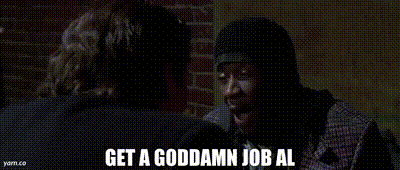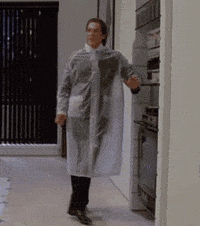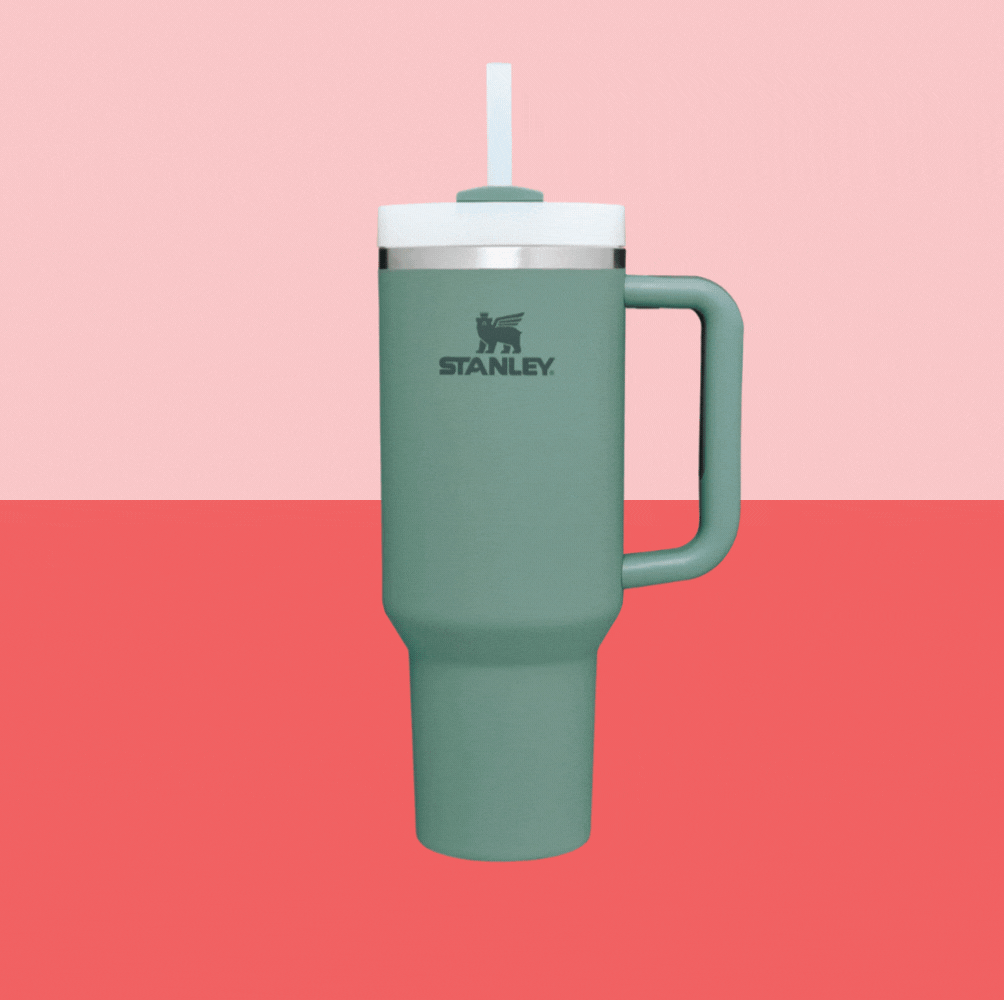Want a deep understanding of consumer psychology?

Fair warning, this will get a little dark and I highly recommend you read the whole newsletter so you don’t fall into total disgust of the world
If that’s cool with you, we’re going to use the movie American Psycho, to help you better understand consumer psychology.
There’s 4 scenes specifically I want to discuss…
- Dinner and Al The Homeless Man
- The Morning Routine
- The Prostitutes
- The Business Card
We could do more, but I’d rather give you a few nuggets, and THEN you go watch American Psycho on your own so you can spot the others. Without a doubt, this newsletter will definitely help you better understand consumerism and how it’s a part of our psyche.
Let’s start here…
The dinner scene where Patrick Bateman is ranting about politics is not only hilarious but also the perfect launchpad for the central theme to distinguish here which is…
“The world is fake, and calculated.”
Pat is going on and on saying, “We need rights for citizens, we need to have shelter for the poor, and people are starving.” Everyone is intrigued with Patrick, yet it’s easy to notice that this is a scripted rant he’s probably performed dozens of times before. He's a psychopath. And so he's able to put on a theatrical emotional display, but the emotions are clearly fake.

And then in a scene shortly after, he's walking down the street, sees a homeless man, and says “Get a job Al! You smell disgusting.” and stabs the guy to death.

Do you see how just those two scenes show both sides of the spectrum?
- Extreme Lack Of Understanding - Murdering A Homeless Man.
- Extreme Understanding - Care And Concern For The World And It’s People
Patrick, when he’s around his friend group acts in a way that is acceptable to the people around him, yet when he’s by himself, the shadow takes over.
I want you to understand, this is real for everyone.
We put on our mask for the world, our signature look, our BRAND image, yet it’s only when we’re by ourselves that we get to see the real version of ourselves. It’s not to say that everyone is a murdering psychopath, that’s definitely not what I’m getting at. Rather, it's that we all have a version of ourselves that we present to the world, and a version that we keep hidden away.
Patrick, like many others, understands he has a reputation to manage, the public opinion of “Pat Bateman” must be glistening and squeaky clean.

So here’s the first lesson I’d like to extend to you…
Everyone has two identities. The first being their public persona, the second being their shadow self (AKA the behind the scenes version of you). Most consumer purchases are an attempt to add to the public persona or hide the shadow self.
People buy the products they buy because they wish to be seen a certain way by others.
Why does someone buy a certain car?
Why does someone buy a certain house?
Why does someone buy a certain set of clothes?
People will tell you, “Well, because I like it!”
The follow up question is, “Why do you like it?”
How do you know that your desire for the product (or for the service) was based on your own desires and not based on the desires of other people?
What I’ve started to understand at this point in my career is that everyone has an individual mind, yet it’s almost like that mind is plugged into a “hive mind” which is another way to explain the desires of a market. It’s through this “hive mind” that desire is created.
Quick detour to explain what I’m talking about…have you seen those Stanley cups?

I was at the gym the other day and saw a minimum of 8 girls with their little sippie cups. This is a perfect example of what I’m saying. Girls buy these tumbler cups because it adds to their persona of being a healthy hydrated gym girl…because other healthy hydrated gym girls buy this product.
From what I’ve heard there’s also a utility aspect to the cups BUT…I guarantee you if we started running ads for Stanley and made it where the only models holding the cups were radically ugly and obese women, no girl would go 100 yards from them, they’d find another brand to support.
A perfect example of this is Lululemon and Alo.
Lululemon starts producing ads and using mannequins with overweight women, all of a sudden, Alo sees a massive spike in sales. We can sit here and say it’s because of price, quality, product selection, and so on…

But at the end of the day, it’s because people buy products that add to the image they want to present to the world.
In most instances, the majority of “fit people” have a radical amount of insecurity surrounding a previously unhealthy or undesirable version of themselves or of a family member. This isn’t a bad thing, it’s a good thing, it’s just about recognizing it for what it is.
Anyways, back to American Psycho…
The movie starts out with Patrick Bateman's morning routine which is filled with a lot of self-care. This extensive morning routine is a clear indication of his obsession with his outward appearance and the persona he wishes to project to the world. From his meticulous skincare regimen to his rigorous exercise routine, every aspect of his morning is carefully crafted to maintain the perfect image he desires.
Bateman’s routine is not for him. It’s for other people. It’s so he fits in.
Here’s your next lesson…
Just like Bateman's morning routine, people's consumption habits are often driven by a desire to fit in, to be accepted, and to be seen as successful or desirable.
Think about the scenes where Bateman is having sex with the prostitutes.
He's filming himself, he’s flexing and looking at the camera. It’s entirely based on his own narcissistic love for this image that he has created. Think about what sex actually should be…it’s supposed to be you embracing someone else and making love, right?
Instead, he is more concerned with how he looks and how the encounter will be perceived by others, even going so far as to film himself. This behavior is a commentary on the way in which people often prioritize the appearance of success and desirability over genuine connection and fulfillment.
Just like how Bateman uses these sexual encounters to feed his ego and reinforce his carefully crafted persona…
In most cases, people in real life engage in activites and consume products in order to project an image of success and attractiveness to others.
Why do they do this?
Because yes, they want to fit in, but there’s a deeper layer to this which is the next lesson you can pull…
The majority of people are narcissts and have a superiority complex, and that's okay.
The average consumer is constantly trying to position themselves as superior in certain areas to other people.
Have you ever met someone with an Android phone?
Pretty much all they do is ramble on and on about how their Android is so superior to Apple, and vice versa, whenever someone who has an iPhone encounters an Android user, there’s a smidge of disgust seeing a green text bubble over a blue one.
This ties back to the themes in American Psycho around conformity, superficiality, and the desire to project a certain image.
The business card scene is perhaps the most iconic example of this - the characters obsess over minute details like fonts and color, seeing these trivial differences as crucial indicators of status and success.

It's a hilarious form of satire on the shallow, competitive nature of consumerism, and how people often define themselves and others through these superficial markers of prestige, rather than substantive qualities or accomplishments.
So this is the next lesson I’d like to point out…
People often define their self-worth and the worth of others based on superficial markers of success, rather than intrinsic qualities or meaningful achievements.
A good friend of mine once told me “I feel like the only way I can get my audience to take me more seriously is if I buy a Lambo. I don’t even want a Lambo, I just know my sales would spike up immediately because that’s all these guys care about.”
Sadly, he’s not wrong considering he runs a B2C Bizopp coaching offer.
Speaking of B2C Bizopp offers, I have a funny story.
When I was 20, I had a client (who I’m about to get on a call with in 2 hours, crazy to think about he’s been a customer for 4 years) who asked me to serve as the accountability coach for this group program.
I talked with around 500 beginner “make money online” business owners and you know what they all said they wanted?
Take a nice vacation.
Get a nice apartment.
Buy a nice car.
Without fail, every single call was the same desires over and over and over again. Not one motherfucker said I want to achieve something significant in my life and achieve my full potential. Remember what I said about the hive mind?
Most people are plugged into the same set of desires, chasing the same generic, pre-packaged dreams. It's like they're all just cogs in the machine, trying to escape a different machine, yet they’re still mindlessly consuming and striving for some socially-constructed ideal of success.
But here's the thing, it's not entirely their fault.
We're all bombarded with messages from the media, from advertising, from social media influencers, telling us what we should want, what we should buy, how we should live our lives. It's a constant barrage of programming, designed to keep us in line, keep us consuming, keep us chasing that carrot on the stick.
And the really fucked up part?
It works.
We internalize these messages, these expectations, these desires, until they feel like our own. We start to believe that we really do want that fancy car, that designer handbag, that Instagram-worthy vacation. We convince ourselves that these things will make us happy, make us fulfilled, make us worthy of love and respect.
But like I said earlier, “the world is fake and calculated”
It’s a carefully crafted illusion, designed to keep us trapped in a cycle of endless consumption and dissatisfaction. Because the truth is, no matter how much we buy, how much we make, how much we conform to society's standards of success, it's never enough.
There's always a better business card with a better (more tasteful) color.
Now, you may be thinking, “Well, this does not make me want to sell any products” and it may even cause some level of disgust at the fakeness of consumer culture. Yeah, been there, done that, and I even got the shirt that says “I went into advertising and all I got was radical levels of nihilism.”
Here’s my thoughts on that…
Once you see the game for what it is, you have a choice to make. Do you want to stay a pawn, mindlessly consuming and chasing someone else's definition of success? Do you want to end up like Mr. Bateman, a radical spitting image of success that is entirely empty inside and who can’t feel anything except through harming others…
Or do you want to become a player, a creator, someone who defines the game on their own terms?
My friends, true happiness, true fulfillment, and true self-respect…they come from within. They come from creating something of value, from living with purpose, from making a difference in the world.
And that's where the real opportunity lies, not in consuming more, but in creating more.
And here's the beautiful irony - when we focus on creating, we often end up with all the things that consumerism promises but never quite delivers.
Choose to be the artist, not just the admirer.
Choose to be the entrepreneur, not just the customer.
Choose to be the leader, not just the follower.
Choose to define success on your own terms, not society's.
When you live life as a creator, you tap into a source of power and fulfillment that consumerism can never touch. You become the master of your own destiny, the author of your own story, the designer of your own reality.
And that, my friends, is a life well-lived.
A life of purpose, of meaning, of true success.
A life where you don't just follow the script, but you write your own damn script.
A life where you don't just consume the culture, but you create the fucking culture.
You don't have access
Join a community filled with ambitious creators and entrepreneurs all focused on mastering the 4 creator skills.

.svg)

